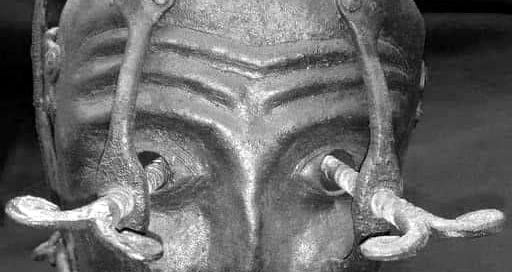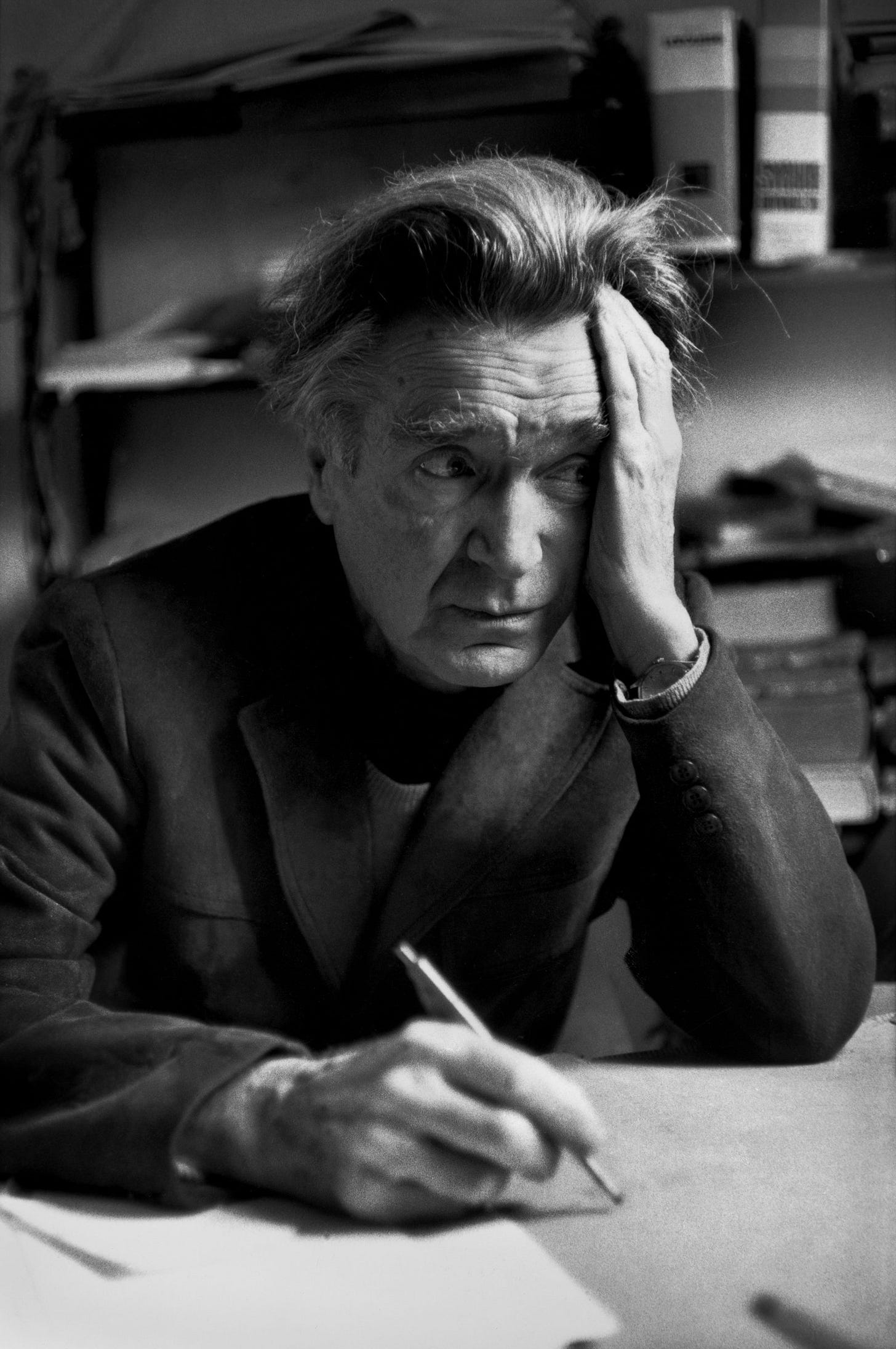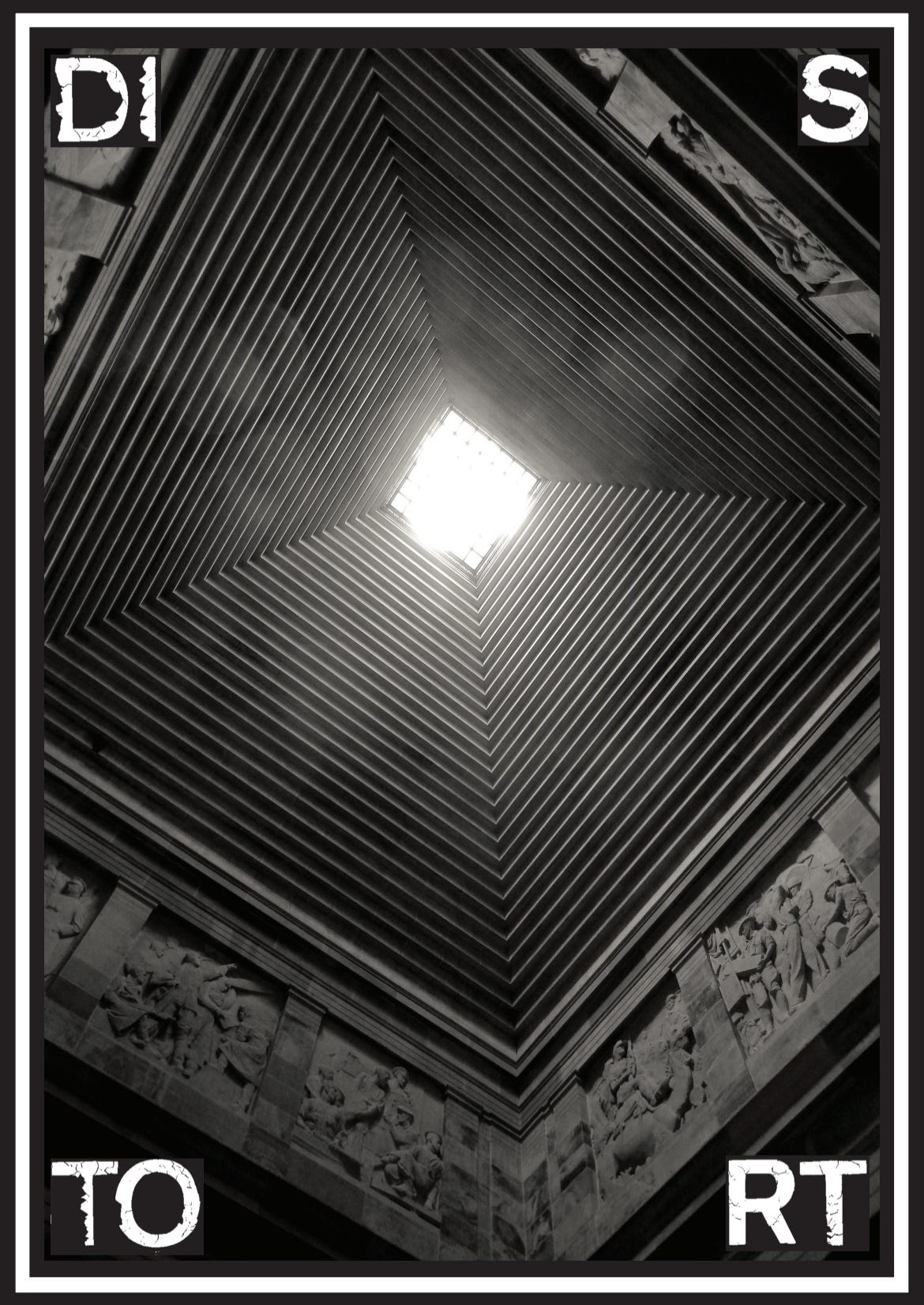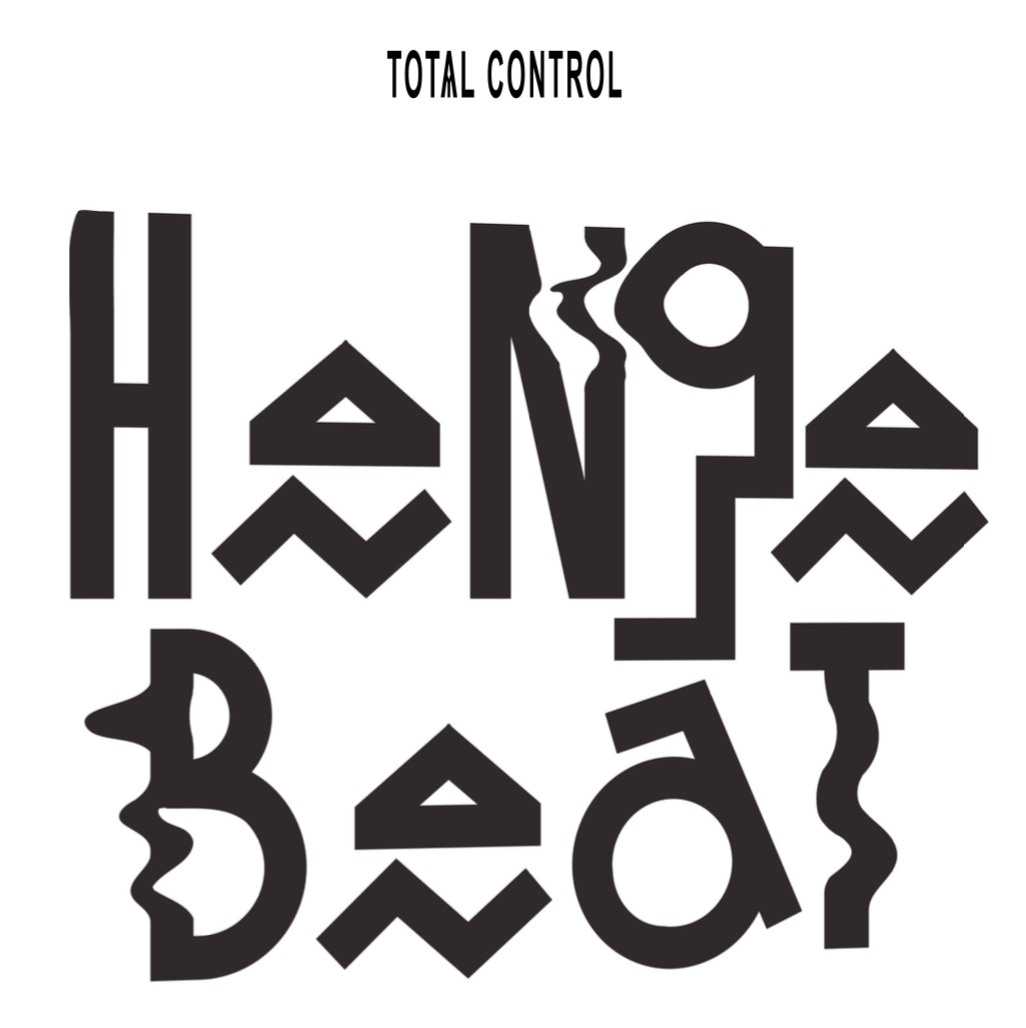Cioran in Berlin with Total Control
On Cioran, F. Scott Fitzgerald and sleepless nights in Berlin coming down from Total Control tour
Reverse Evolution is writing and broadcasting from life of dilettante: passion, obsession, conflict and leisure. The supremacy of music. WWIII. The Age of Quarrel. Modern Horror. Psychotic Sci-Fi. Television OD. Laughing at The System. Kvlt HC. True Romantic. Kvlt HC. Noir Future. Tekno Acid Beat. Plus a history of Distort mag and other print publications. - DX, Sydney, Australia
This piece is part of a series of reading while travelling written for the Zagreb Book Review.
After the 2011 US Europe Total Control tour I spent a couple of weeks in Berlin. I arrived a couple of days before Christmas and stayed until the first day of 2012, a festive time that I think of immediately when I smell ginger cookies or gunpowder. After 35 shows in 6 or so weeks I felt the immense bliss of closing a door and knowing it would remain closed unless I opened it.
It was quite a magical time, my first Christmas in Europe. I love Christmas. My entire life I’d waited to attend something like the Christmas markets that occur in Berlin. Mulled wine, eating Kranski’s, watching kids slide down ice, smoking cigarettes and exhaling into wisps of fog and snow, beautiful snow. Many jokes start with the setup “So, an Australian ends up in Berlin…”. This is one of them.
Aside from a few nights spent with treacherous poets, I spent a lot of time alone in those couple of weeks, reading for hours in a restaurant downstairs from my apartment, drinking vodka and eating cheap nasty yellow Berlin park speed. I wrote a lot in my notebooks, coming down from a couple months on tour, but my main memories are infected by reading Cioran.
It was A Short History of Decay, and this line struck me:
The importance of insomnia is so colossal that I am tempted to define man as the animal who cannot sleep. Why call him a rational animal when other animals are equally reasonable? But there is not another animal in the entire creation that wants to sleep yet cannot.
I left the book in Berlin with a friend and returned to Australia with grand romantic dreams and that feeling after a long tour of contempt for the dull routine of servitude. I also returned completely broke and spent the summer in a dull routine of servitude, sweating in a warehouse, with certain Cioran insights bouncing around my skull like a low calibre bullet, obliterating memories and attachments and feelings.
Toward the end of that year I found Cioran’s entire work had been republished in handsome editions and was particularly taken with an essay Cioran wrote on Fitzgerald in Anathemas and Admirations.
I wrote the following in response, and published it in Distort #42, compiled with notes I’d written on Cioran in that Berlin apartment coming down from the Total Control tour.
"I like thought that preserves a whiff of flesh and blood, and I prefer a thousand times an idea rising from sexual tension or nervous depression to an empty abstraction." - Cioran
E.M. Cioran's work indicates the caustic philosophical consequences of sleepless rumination upon insignificance and failure. It is thick with anxiety, but retains buoyancy, the sick humor of sneering into the abyss. For a generation allied by smug cynicism and chic nihilism, to encounter a space of understanding free of the sour stench of complaint might be palliative! It could correct the posture, provide iron to the will, destroy some friendships, and it might well be a taste of joy, a flicker of warmth... at the very least, it might mortify those prone to complaint.
Cioran was a Romanian-born philosopher-mystic who honed his craft in French, known for sharp-edged aphorisms and fragments, recalling Nietzsche's Daybreak. His was the bleak philosophy of insomnia, horrific laboring through late hours, candid lamentations of his very birth, his eyes drooping down his skull, a cigarette sizzling against an open sore. In Beyond Good and Evil, Nietzsche states "the thought of suicide is a strong consolation; one can get through many a bad night with it." Cioran's entire oeuvre can be seen as exploring this sentiment.
In 2012, a number of his books were published in fine editions. Anathemas and Admirations collects two of his books, Exercices d'admiration and Aveux et anathème*. The resulting combination allies a series of literary essays—the admirations of a wide range of writers including Borges, Beckett, and Fitzgerald—alongside clusters of confessional aphorisms:
"To have nothing more in common with men than the fact of being a man!"
"One can imagine everything, predict everything, save for how long one can sink."
Cioran's admirations often intimate curmudgeonly affection for other writers and are exemplary accounts of his method and approach. For instance, in ‘Some Meetings’, Cioran offers moments of intimacy with Beckett which reveal as much about Beckett's saintly detachment as Cioran's brooding disgust: "he disparages no one, unaware of the hygienic function of malevolence." For reference points on other literary admirations, Henry Miller's love letter to himself in the guise of a study of Rimbaud and Nick Land's deranged engagement with Bataille both come to mind in the sense that they eschew the deft theoretical engagement of masters like Blanchot for a biographical confession of obsession and ruin.
I'd like to discuss one of these admirations in depth, because it reveals much about Cioran's work, because it is a timely reflection, and because it is a great essay worth discussion. ‘Fitzgerald: The Pascalian Experience of An American Novelist’ would make a great companion piece to the recent Luhrmann production of The Great Gatsby, an indication of the decline in Fitzgerald's interpretation and cultural value. It's a kind of how-to-read Fitzgerald, hardening the resolve of teens forced to endure limp scholastic interpretations. Imagine a generation of lit-thugs interpreting Gatsby through Cioran instead of Luhrmann! Cinemas ablaze, DiCaprio holed up in some secure locale offering daily apologies to the world via Twitter, his fatwah anguish consoled by Rushdie. Given the resurgence in interest in Fitzgerald's work, the publication of Anathemas and Admirations is fortuitous!
In 1955, when Cioran's essay was written, Fitzgerald had been dead for 15 years. Fitzgerald drank himself to death after his wife, Zelda, was institutionalized as a schizophrenic. His degradation was preserved in intimate detail in a series of essays he wrote long before his death, between 1935-1936, collected as The Crack-Up. He was forty years old and experiencing his bout of lucidity, the consequence of a crash after seven years of alcoholic, hedonistic excess. In these essays, Fitzgerald attempts to locate his experience within the general tumult of his Lost Generation, dismissed by Cioran as a complacent gesture. Where Cioran finds value is precisely that very specific and very personal experience of ruin that Fitzgerald expresses: "they partake of an essence, of an intensity that transcends contingencies and continents."
Cioran's admiration of Fitzgerald opens with a study of two experiences of lucidity: innate lucidity as graceful immanence, and lucidity developed as an affliction, experienced as a curse. Fitzgerald's struggle with developed lucidity is established with a quote from The Crack-Up that presents failure as a response to trauma felt long after the event, a kind of corruptive cancer. Cioran expresses his regard for this Fitzgerald, and asserts that The Crack-Up is no mere curio of the degradation of a populist author, but the only piece of literature of Fitzgerald worth considering a success.
It is immediately clear that Cioran does not find merit in any of Fitzgerald's highly regarded novels, including Tender Is The Night and The Great Gatsby, stating that he found it "incomprehensible" that T.S. Eliot could have read the latter three times! Cioran cites with grave distaste the private correspondence of the young, successful Fitzgerald as evidence of pandering desperation and need for approbation. The inference is that this desperation affected the quality of Fitzgerald's novels. A tenuous inference, one entirely appropriate from Cioran, an impulsive contrarian that snubbed at constructing arguments but revelled in hurling fragments of sense into a void of nonsense. It does not weaken the essay, but establishes a kind of protective intimacy between Cioran and the suffering Fitzgerald. Those in need of a consistent line of argument would shrink at Cioran, apparently regarded in an uncredited quote on the book jacket as "the last worthy disciple of Nietzsche."
Success achieved without toil is soporific. It smothers the instincts with validation and reward. Fitzgerald's success reduced his existence to a waking slumber. To wake from a long sleep is to enter a state of confusion. Fitzgerald was confronted by his inability to do much more than be intoxicated, both in the sense of having his senses gratified and in the sense of being fucked up. Cioran examines Fitzgerald's night visions and anxiety at being unable to return to the shade, living in a dream, without illusions of God to provide him comfort in his respite from respite. The fruit of Fitzgerald's nocturnal introspection is bitter, a journal of decay. This is to Cioran's taste, acceding to the sick their productive purpose is to be sick to the limitations of experience, to lick the ground with gratitude for being the only thing lower.
Fitzgerald mopes that insomnia robbed him of mental clarity and the capacity to reflect why he'd "become identified with the objects of my horror or compassion." Cioran defines sickness in distinction to the compulsion of health: to be an object, to be propelled and compelled as an expression of unrestrained will. The sick see their suffering and indignity in the world around them, a solipsism that reads into all reality an expression of one's horrors or compassions: "to be sick is to coincide totally with oneself." The sick are incapable of being an object, and are incapable of action. To act is to partake in the unsympathetic field of objects engaged in motion. Self-pity condemns action, regards the self as unclean or faulty, and glorifies capitulation, depression, death. Self-pity does all this, and it does this to keep one sane, to keep one in the throes of reason. It's the final expression of self-preservation by those who have deprived life of all value and worth.
The Crack-Up, then, should be interpreted as the literary expression of self-pity. It reads like a deflated Hamlet if you cut the final act and present Hamlet, his face caught in a pained grin, sharing wine with his new father and laughing over some crass sexual remark. There is no redemption, but defeat and retreat: "his crises would lead him not to mysticism or a final despair or suicide, but to disillusion." To disillusion, and to Hollywood.
Fitzgerald's admirers deplored his descent into hell and subsequent reflections as having "spoiled his literary career," to which Cioran counters that we must only deplore that he was not equal to the task of being loyal to his failure, to explore it to its nadir, to fail and to fail again. Cioran compares the suffering of Fitzgerald to the suffering of Nietzsche, Kierkegaard, and Dostoevsky, finding Fitzgerald's worth is only in that he was incapable of facing up to the horrific truths that he'd stumbled upon in his season in hell. The Crack-Up indicates that Fitzgerald failed at being a failure, and for Cioran this is his sole literary value, concluding it is "a second-order mind that cannot choose between literature and the 'real dark night of the soul.'"
More from my Zagreb Book Review column in this spirit:
Houllebecq in Tokyo with Total Control
Nietzsche with Straightjacket Nation in Slovakia
Graham Greene in KX with Station Model Violence
Genet and Chris Kraus in Copenhagen with Iceage
Herman Hesse in Detroit with 9 Shocks Terror








